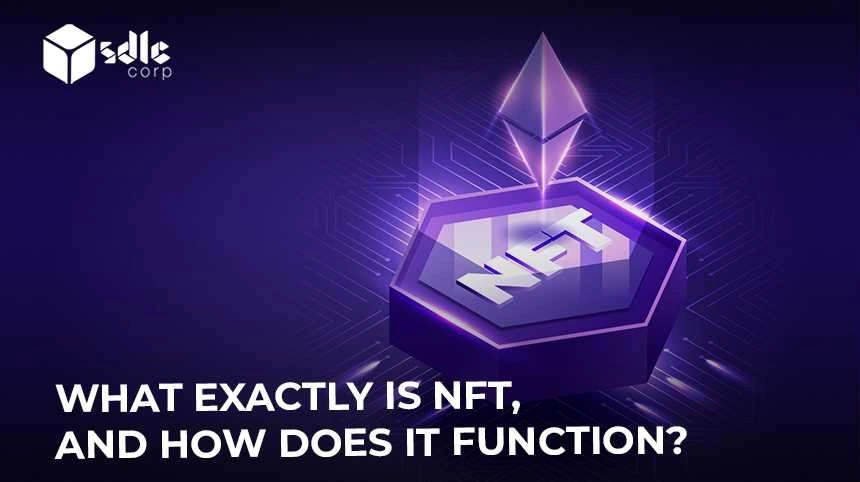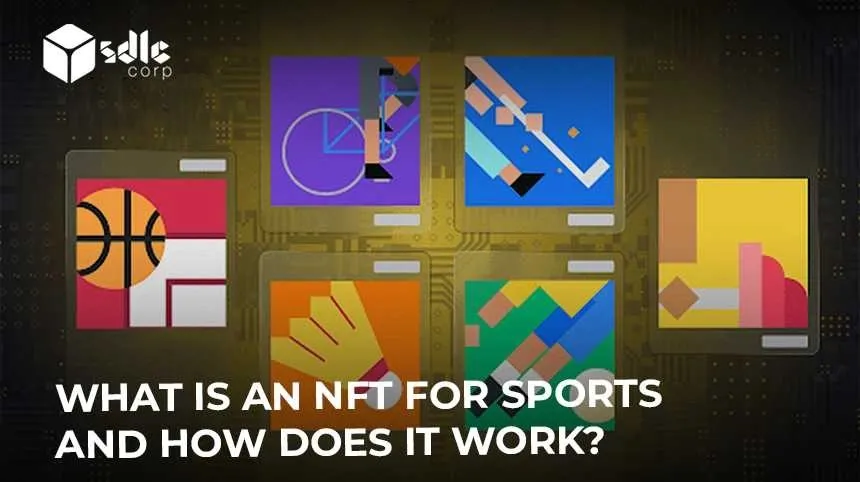Consumer Goods Blockchain In Addition, the Retail Industries
Blockchain and NFTs in Goods Industry: The significance of blockchain technology, as well as its prospective applications, are not mysteries to us.
It is a safe way of protecting yourself that may be used in any circumstance.
The fact that blockchain creates an immutable record of all transactions is the most important advantage it offers.
It’s possible that no third-party modification of any type is even required at all. To reach this goal, the blockchain technology could be used to make sure that documents are honest and reliable.
Blockchain technology might cause a significant change in the supply chain if it were used there.
Blockchain technology could be used to help manage sources of income, after-sale services, and supply chains.
Additionally, the technology behind blockchain has the ability to help ensure that the flow of goods will not be disrupted at any point.
To summarize, this will result in increased levels of trust and happiness among customers.
The Benefits of Blockchain in Consumer Goods and the Retail Sector
Even though it has problems, blockchain technology is the only way to prevent problems that doesn’t involve building trust or a reputation for safety.
When planning for the future, customer trust is crucial, especially in retail and other customer-facing industries.
Blockchain technology could help consumer goods and blockchain product ideas in retail stores because of how much data it stores.
After all, why should the retail and consumer goods industries be interested in blockchain for goods technology? And what impact does it have?
Transform Goods: Explore Blockchain and NFTs Now!

Explore our other insights!

Role of Blockchain in Poker Game
Blockchain in Poker Game depends on trust around fairness, balances, and payouts. Therefore, players must believe cards are

What Exactly is NFT, And How Does It Function?
Imagine purchasing a digital painting on the internet at a reasonable price and receiving a unique digital token

What is an NFT for Sports and How Does It Work?
The emergence of Non-Fungible Tokens (NFTs) has revolutionized several industries, with the sports sector being one of the
Some Factors should Take Priority; They are
1. Bills are paid without difficulty.
2. Assurance of the authenticity of each purchase.
3. Improving customer satisfaction, dependability, and transparency in supply chain management.
4. Keeping one’s identity, being honest, and building a relationship of trust with consumers or buyers.
Increasing the Firmness of the Hold
As blockchain technology spreads to more markets around the world, the global supply chain will be able to take advantage of how easy it is to use.
Transactional data may be instantly disseminated thanks to a technology known as blockchain, which is a distributed ledger. At the moment, transactions need to be verified by a third party. If blockchain were to take over, this would no longer be necessary.
First, the parties involved will have a direct conversation to iron out the mechanics of the delivery, and then, after that, all of the supply operations will be handled locally.
Years have passed since we first started exploring blockchain’s potential and learning about its many uses.
Trust, physical labor, transactions, delivery, and logistics infrastructures are now all at an enterprise level.
Humans are utilizing it more and more in the retail sector, and the results of blockchain for consumer goods are surprising them.
NFTs in Goods Industry
Even upscale areas may be affected by broader economic and social shifts. The truth is that it has always liked new things, taken steps to deal with them, and gotten good results from its efforts.
The premium company, therefore, wasted no time in seizing the opportunity presented by blockchain technology as soon as it became widely accessible.
First, non-fungible tokens were introduced to establish a trail of ownership for a variety of goods, and now they’re opening up brand-new ways for people to become involved (NFTs).
Now more than ever, startups are springing up to provide entire services in a wide range of industries using blockchain technology.
In this newsletter, we’ll look at how NFTs are changing the face of high-end retail.
Understanding How NFTs Interact with Luxury Brands
Non-fungible tokens, often known as NFTs, are a kind of currency that may be used for transactions inside the parameters of a certain environment.
Because it has special properties that the other tokens do not have, every token can be distinguished from the others in the set.
In recent years, non-fungible tokens (NFTs) have been used in a number of virtual situations, including games. They are also an important part of the metaverse (How the Industrial Metaverse is Transforming the Way We Work).
They are working on getting into the market for luxury goods, which has much less clear pricing than most other markets.
Emerging technology may be able to aid companies in overcoming the constraints that prevent them from completely using progressive advertising tactics.
Some of these barriers include not being able to link results to specific campaigns or getting consistent participation from consumers.
One example of a barrier is how hard it is to figure out how well different advertising campaigns work.
Non-fungible tokens, which make use of blockchain technology, have the ability to not only be used to tune and store both real and virtual assets, but also to enable users to interact with them in new ways. This is one of the many uses that non-fungible tokens may have.
By utilizing this device, corporations may check the integrity of the data they gather on their customers’ purchases as well as the ownership, origin, and provenance of their assets.
Also, companies can check that the information they collect about their assets is correct.
Stay Competitive: Embrace Blockchain and NFTs for Enhanced Goods Management!

Why Wait Until Tomorrow to Introduce Non-Fungible Tokens into Your Company when You can Do it Today?
In a nutshell, corporations should consider introducing enterprise non-fungible tokens for their businesses and goods.
This would make it clear who owns what and let them keep track of how their resources are being used.
Corporation The NFT period may be applied to any business, including high-end NFTs for products in the retail industry, the fashion industry, and the news media, among others.
NFTs give consumers and their goods a safe place to be, and they also protect a company’s reputation and the supply chain.
How will NFTs Impact Goods Industry?
Explore our other insights!

Role of Blockchain in Poker Game
Blockchain in Poker Game depends on trust around fairness, balances, and payouts. Therefore, players must believe cards are

What Exactly is NFT, And How Does It Function?
Imagine purchasing a digital painting on the internet at a reasonable price and receiving a unique digital token

What is an NFT for Sports and How Does It Work?
The emergence of Non-Fungible Tokens (NFTs) has revolutionized several industries, with the sports sector being one of the
Global businesses in many different industries, like consumer goods, sports, and retail, can use NFTs to change how they connect with their customers, raise the prices of their existing products, enter new markets, and come up with new business models.
FAQ’s
1. How can Blockchain Help Customers?
Blockchain technology makes business-to-business data exchanges more reliable, trustworthy, unchangeable, and auditable. It also saves businesses money by making them more efficient.
2. The Impact of Blockchain Technology on Consumer Habits
Blockchain is a good choice for consumers because it makes records and data more open and provides more privacy and security.
3. Why are there so many Companies Using Non-Traditional Currencies?
The integration of non-fungible tickets (NFT) and blockchain technology for ticketing provides companies and customers with an increased level of protection against the counterfeiting of the products that are being sold.



